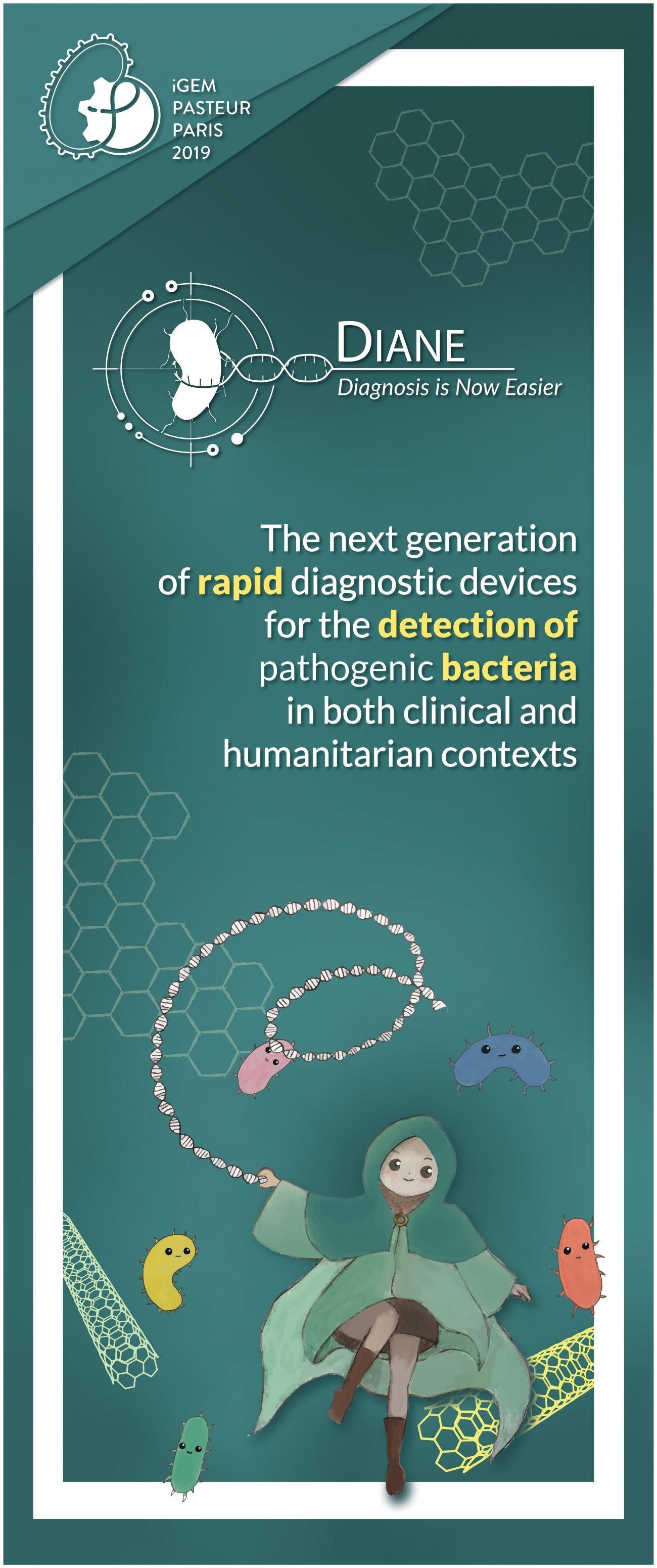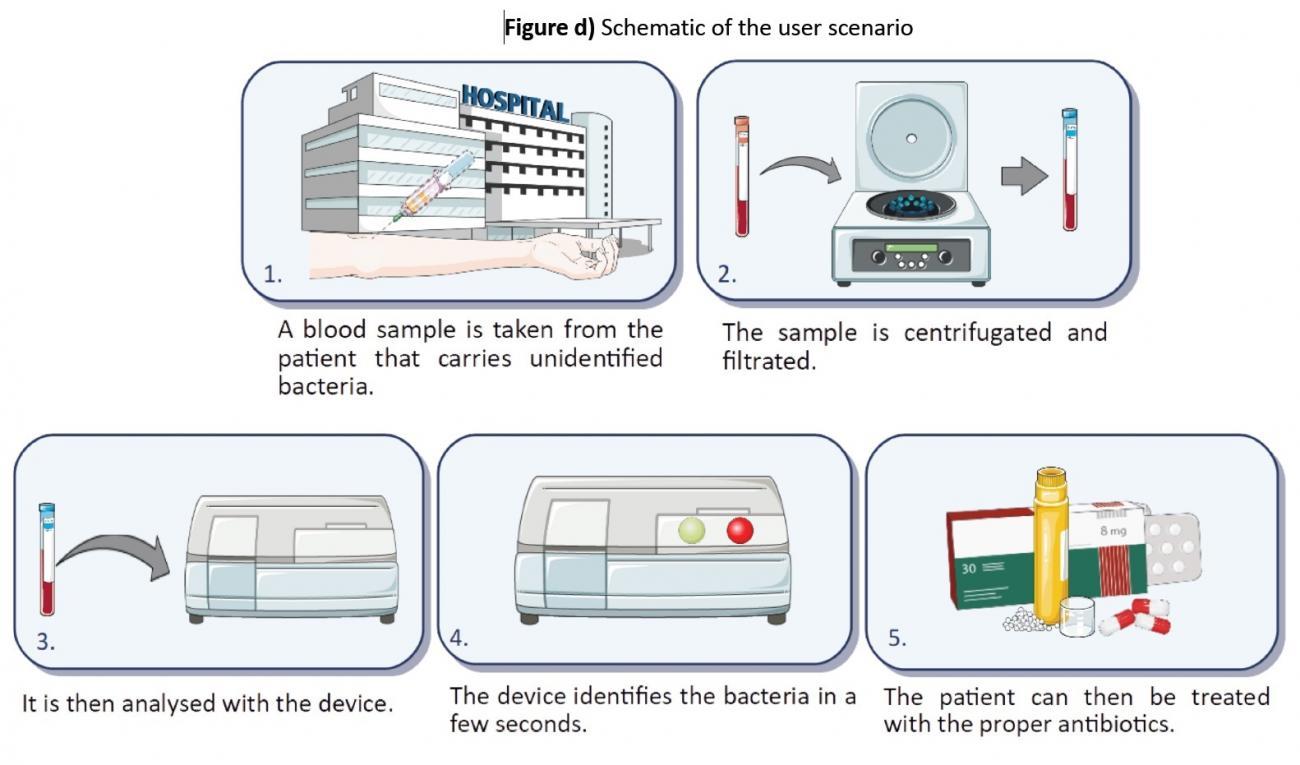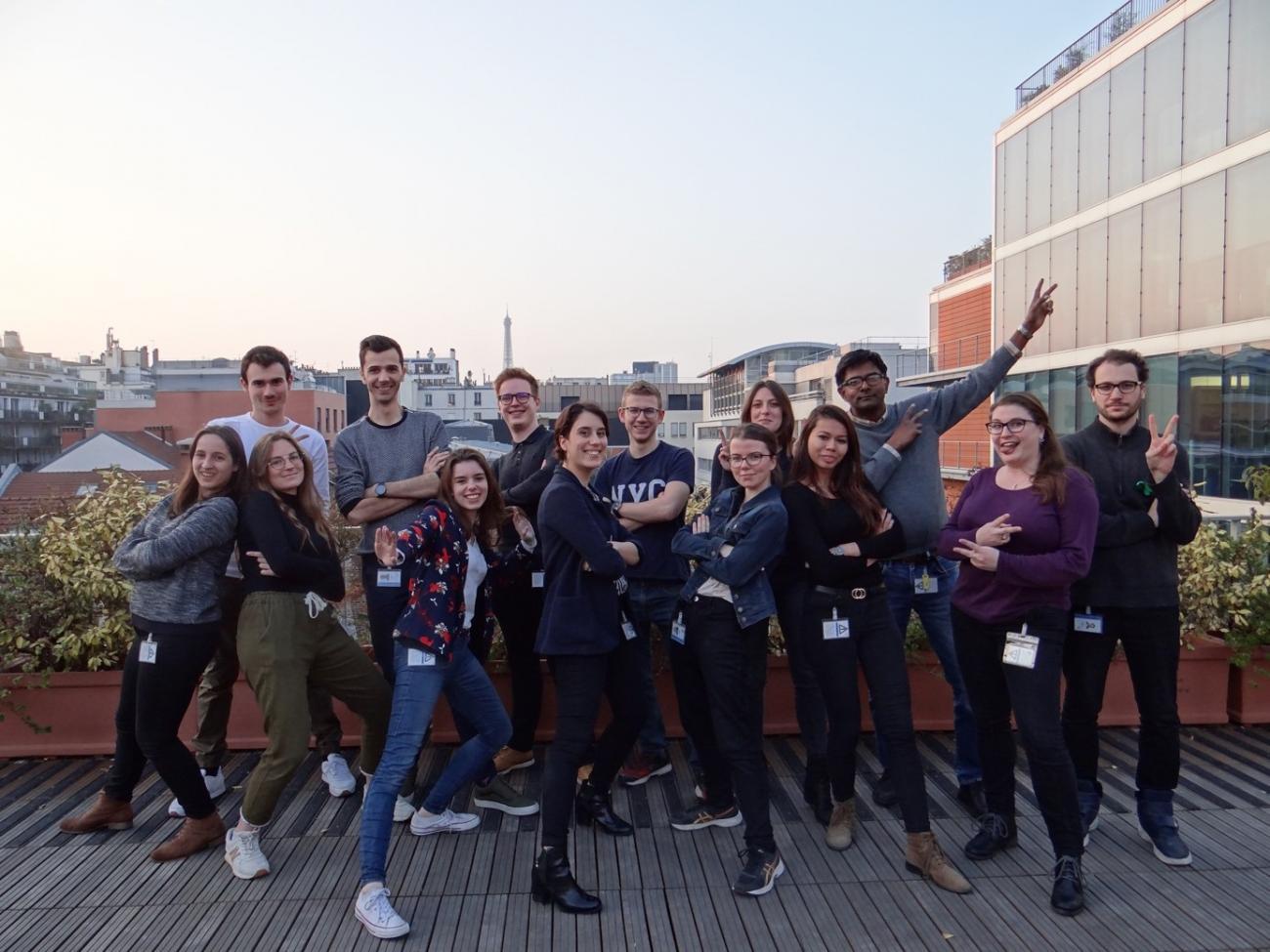In 2019, for the fifth year running, the Pasteur iGEM team took part in the International Genetically Engineered Machine (iGEM) competition for the promotion of synthetic biology research. The competition, organized by the Massachusetts Institute of Technology (MIT) in the United States, was held from October 31 to November 4. The 2019 Pasteur iGEM team presented its project "DIANE, Diagnosis is Now Easier". The team brought back a silver medal (undergraduates category), a nomination in the Best Entrepreneurship category and congratulations for its expertise in biosecurity and biosafety.
More than 3500 participants attended the Giant Jamboree, the culmination of the iGEM competition, which celebrates the achievements of the projects developed by 375 international teams in the area of synthetic biology. The ten students from the 2019 Pasteur iGEM team and their coaches came to support their project "DIANE, Diagnosis is Now Easier", a portable rapid diagnostic device that immediately informs doctors of the bacteria responsible for an infection based on a human fluid sample (blood, saliva or urine). "The idea is to enable doctors to administer an appropriate antibiotic treatment to patients as quickly as possible, since current methods for diagnosing bacterial infections can still take around 24 hours – a real problem in cases of sepsis," explains Ronan Soudy, one of the students on the 2019 Pasteur iGEM team. Every five seconds, someone in the world dies as a result of sepsis. If it fails to be treated quickly, it can give rise to nerve and muscle complications and ultimately lead to death (see the Sepsis fact sheet).

"Antibiotic resistance is also now a major public health issue worldwide," continues Ronan. The European Center for Disease Prevention and Control (ECDC) estimates that 25,000 people die in the EU each year as a direct result of antibiotic resistance (see the fact sheet). A similarly high death rate has been observed in the United States by the Atlanta-based Centers for Disease Control and Prevention (CDC). The rise of antibiotic resistance will lead to a dramatic increase in these figures, as indicated in the report by Lord J. O'Neill on the impact of antimicrobial resistance by 2050.
The report has played a decisive role in raising political awareness of the vital need to address the issue of antimicrobial resistance. British economist Jim O'Neill came to speak at the Institut Pasteur in Paris in September 2019, alongside international experts in public health, scientists and representatives of the public and private health sectors. At this event, Stewart Cole, President of the Institut Pasteur, reiterated that "a paradigm shift is needed" to address the problem of antibiotic resistance.
Consult the Institut Pasteur's 2019-2023 Strategic Plan
A project under development for several months
"This year at the Institut Pasteur, we set up a team of ten students working in a variety of fields including biology, physics, chemistry and intellectual property, giving us the wide-ranging skills we needed to develop the DIANE project," explains Deshmukh Gopaul, head of the iGEM project at the Institut Pasteur. See the video below.
DIANE, Diagnosis is Now Easier – Project led by the 2019 Pasteur Paris iGEM team: developing a rapid diagnostic device to tackle the deaths and complications associated with bacterial infections and antibiotic resistance.
The DIANE device
To reduce the sepsis mortality rate, the "Surviving Sepsis" campaign, launched by the Society of Critical Care Medicine (SCCM) and the European Society of Intensive Care Medicine (ESICM), has developed guidelines that recommend administering antimicrobial therapy within an hour of recognizing severe sepsis or septic shock. In these emergency situations, broad-spectrum antibiotics or antibiotics based on the likely origins of the infection are often administered. But this can result in treatment errors, losing critical time for patients. The use of broad-spectrum antibiotics is also contributing to the development of antimicrobial resistance.
To tackle this public health emergency, the 2019 Pasteur iGEM team decided to develop a portable rapid diagnostic device that immediately informs doctors of the bacteria responsible for an infection based on a human fluid sample (blood, saliva or urine), so that they can swiftly administer an appropriate antibiotic treatment to the patient.
The DIANE device is based on an electrochemical bacterial detection method that uses aptamers – pieces of DNA that can bind to a specific target – attached to electrodes in carbon nanotubes. "We wanted to create this device so that it could be used both in hospital emergency departments and in difficult conditions during humanitarian missions," explains Ronan Soudy.
The system works as follows (see diagram below): a blood sample containing unidentified bacteria is taken. The sample is centrifuged and filtered. It is then analyzed by the DIANE device. In just a few seconds, the device identifies the bacteria. The patient can then receive appropriate treatment.

Potential for further applications
DIANE can be adapted to detect any infectious organisms – so as well as saving lives and avoiding complications in sepsis cases, the project developed by the 2019 Pasteur iGEM team may also be used to provide immediate antibiotic treatment for other bacterial infections, thereby helping tackle the rise of antibiotic resistance.
In future, the student team is keen to adapt the device to detect other bacteria, for example those involved in urinary tract infections. It could even potentially be extended to detect other vectors such as viruses or fungi.
"We would also like to work with NGOs to respond to epidemiological emergencies and slow the spread of pathogens in developing countries," concludes Ronan Soudy.
After the amazing adventure of the 2019 Pasteur iGEM team in Boston, the Institut Pasteur will present awards to the ten students in December.






